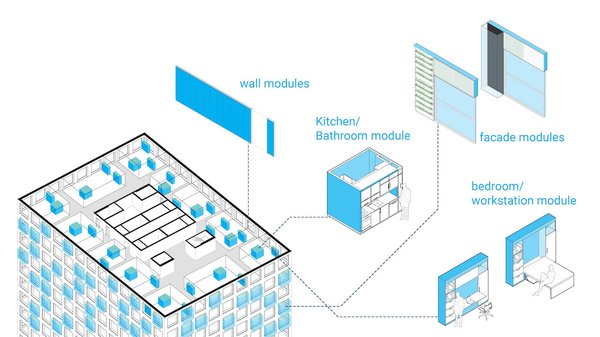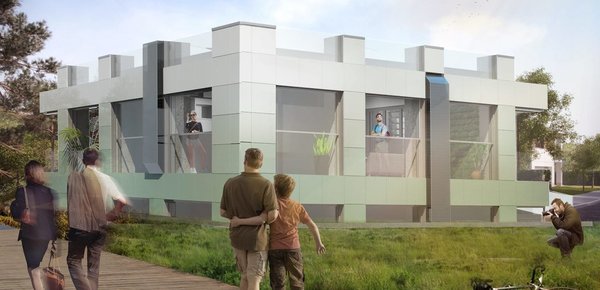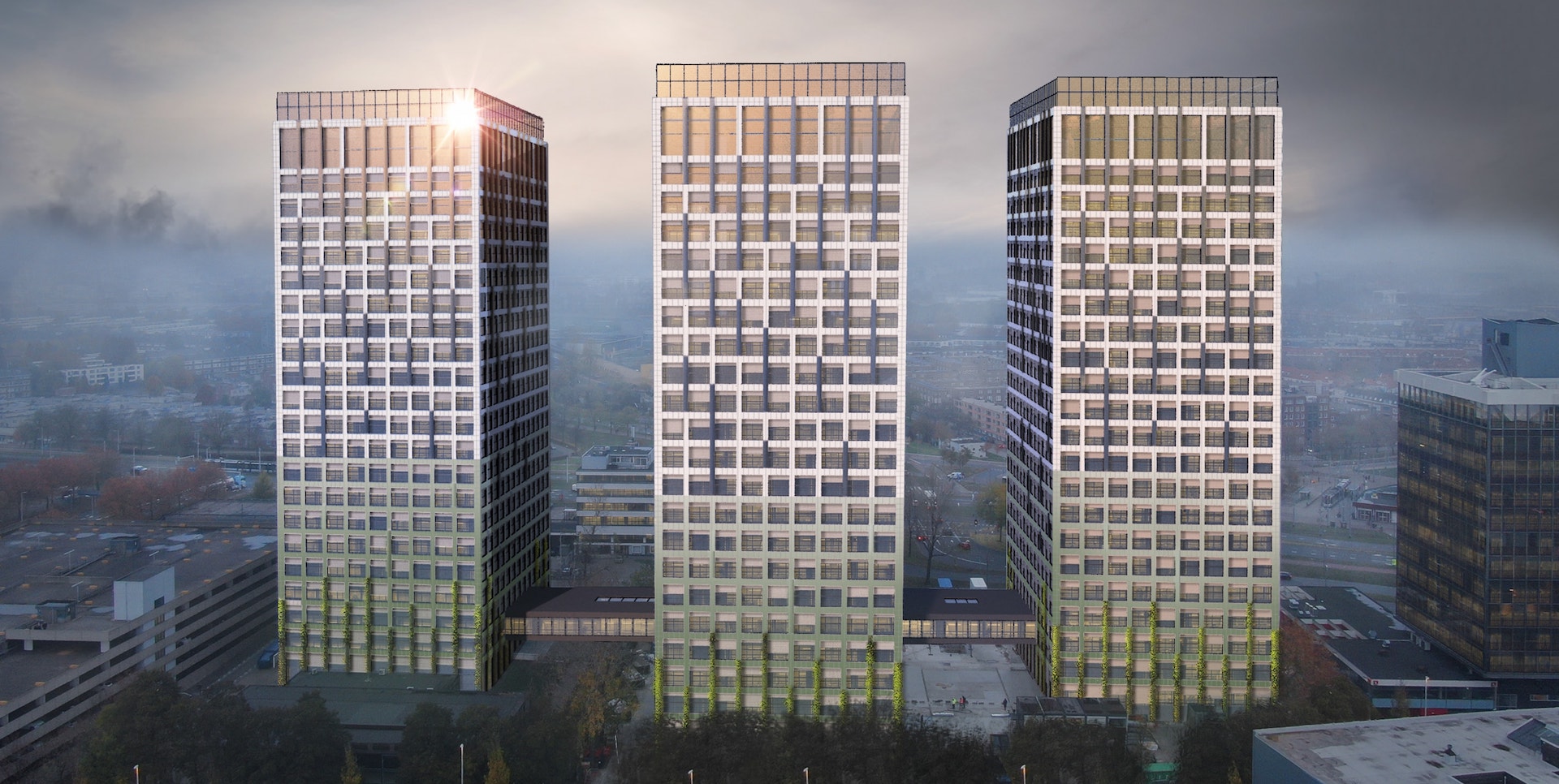Solar-powered modular houses
By 2023, more than 34 million m2 of office space will have to be more energy-efficient. Moreover, the Netherlands requires one million additional houses. TU Delft students hope to kill two birds with one stone.
‘Let’s make our built environment great again’, quipped Siem van Sluijs in his presentation. This July, he and his fellow students from the Modular Office Renovation (MOR) dream team will travel to Szentendre (Hungary) to participate in the 2019 Solar Decathlon Europe (SDE). The event challenges student teams from 16 international universities to build a fully-functional solar-powered house in just 10 days.
This year’s theme is renovation. The MOR team designed four modules to transform empty offices into houses: a wall module, facade module, kitchen/bathroom module and a sleeping/workstation module. The modules are interchangeable, to satisfy the housing needs of residents wherever possible. They can be linked to create small or large homes, and it is easy to move them to another building.

The four modules can be used interchangeably to match the housing wishes of residents. (Image: MOR-team TU Delft)
The design aims to be net positive, which means that the building produces more than it uses. This can be achieved with solar panels, for example, using vegetation to filter outside air, collecting rainwater for aquatic plants and growing food on site. This intention is in line with the Dutch government’s aim to become a circular economy by 2050.

The prototype at the SDE will be a medium-sized home. Concrete beams stick out at the top and on the sides to show it is a part of a larger building. (Image: MOR team TU Delft)
In order to test the feasibility of the concept, the team is using the Marconi Towers in Rotterdam as a case study. Like other office buildings, these towers have a fixed concrete structure with open planning, suitable for modules.
The team will spend the months ahead working on their prototype in The Green Village on campus. The students are still looking for sponsors willing to provide funding in kind.
Building a house in 10 days sounds ambitious, even more so because the students have no construction experience. ‘We are confident that we will finish on time’, says student team leader Francesco Longo. ‘In July, we will see whether that is enough to make our offices great again’.

